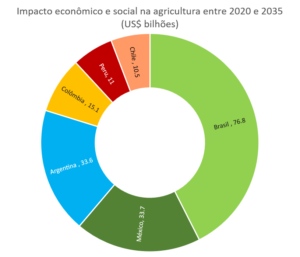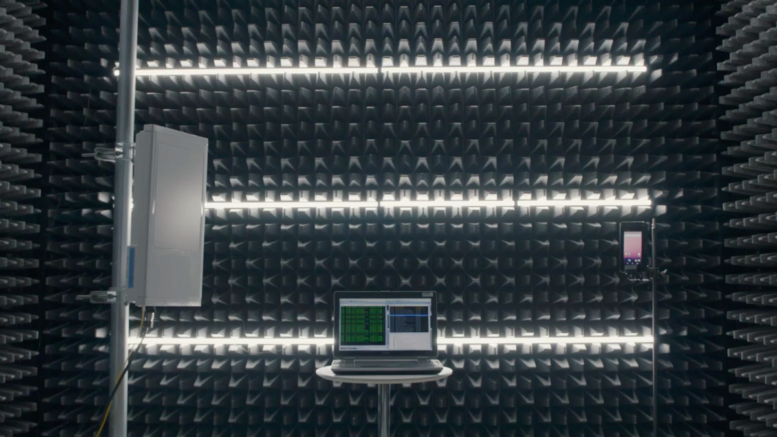
Paulo Bernadocki
Interview with Ericsson’s Network Solutions Director.
Paulo Bernardocki is Director of Solutions and Technology at Ericsson for the Latam South region. He is an electrical engineer graduated at UNICAMP, he holds an MBA from Getúlio Vargas Foundation (FGV) and he is certified in Data Science, and has worked in the telecommunications market for over 20 years, with experience in Brazil and abroad. Bernardocki gave the following interview to AgriBrasilis.
AgriBrasilis – In the world, how many countries already have the technology in operation and how has Ericsson developed its implementation project?
Paulo Bernardocki – Ericsson has established a strong advantage in the deployment of 5G. We were the first supplier to implement commercial 5G networks on five continents and we currently have more than 110 agreements/contracts signed with single operators, 65 of which have active commercial operations in more than 30 countries, including the USA, several in Europe, China and Brazil.We work with our customers to support them to transform 4G into 5G in a fast, simple, safe and cost-effective way. Here in Brazil, specifically, we supply equipment to all operators and more than half of all 4G infrastructure (radio bases, antennas, radios) is Ericsson.
In São Paulo, the largest city in the country and one of the largest in the world, all 4G infrastructure is provided by us. The network of all our customers is already being prepared for 5G since 2016, with the use of radios that can be converted to 5G with a software update.
To have an idea of this impact, for precision agriculture, studies project that it will be possible to reduce the costs related to field operation and soil analysis, in addition to allowing a significant increase in relation to the global yields of crops, among other benefits.Two months ago, we announced a partnership with São Martinho Mill, one of the largest sugar-energy mills in the country. The agreement is focused on the development of technological innovations for agribusiness to be applied in the IoT environment, based on open 4G and 5G connectivity standards, being the first in the country to have this technology.

Paulo Bernardocki –Currently, the agribusiness sector corresponds to almost 25% of the Brazilian GDP, but only in 29% of rural properties there is connection, which represents a restrictive factor for innovation.
Connectivity will accelerate digital transformation in the field, enabling access to tools in the cloud, leading to greater automation of processes and yield gains.
Today, the time between the collection of information in the field, its data processing for decision making, and its application in the field, can last for days. With connectivity, this cycle becomes seconds.
The 5G Business Potential study, analyzed the agribusiness value chain, considering not only the value produced in the field, but all the inputs used in production, the results show that this vertical has the accumulated potential to capture US$ 9.8 billion between 2020 and 2030.
The development of the entire agribusiness chain from 5G onwards can make Brazil much more productive than it already is. The global demand for plant inputs, food and protein will double by 2050 and Brazil is the only country with sufficient area and favorable conditions to increase the food supply in scale, becoming the largest exporter of agricultural products of the decade.
For this reason, Brazil is a natural testing environment for more than 1,000 AgTechs worldwide, and the country has seen investments soar last year, establishing a new generation of farmers.
Paulo Bernardocki –The technologies already developed for these networks, such as the NB-IOT, extend the coverage, allowing the installation of hundreds of sensors on the farms, with low battery consumption, which allow the equipment to be installed for more than 10 years on the ground.
Regarding scalability, in the beginning, as with any technology, there will be a smaller proportion, but this will certainly be resolved quickly, given the change that the technology will bring and its great reach power.
Paulo Bernardocki –The frequency auction should take place in the first half of next year, according to information from Anatel.
There are already 5G services active in Brazil, making use of 4G frequencies, through dynamic spectrum sharing technology. In this case, 4G and 5G share the spectrum previously used only by 4G. Although there are not very large gains in speed, there is a reduction in network response time.

